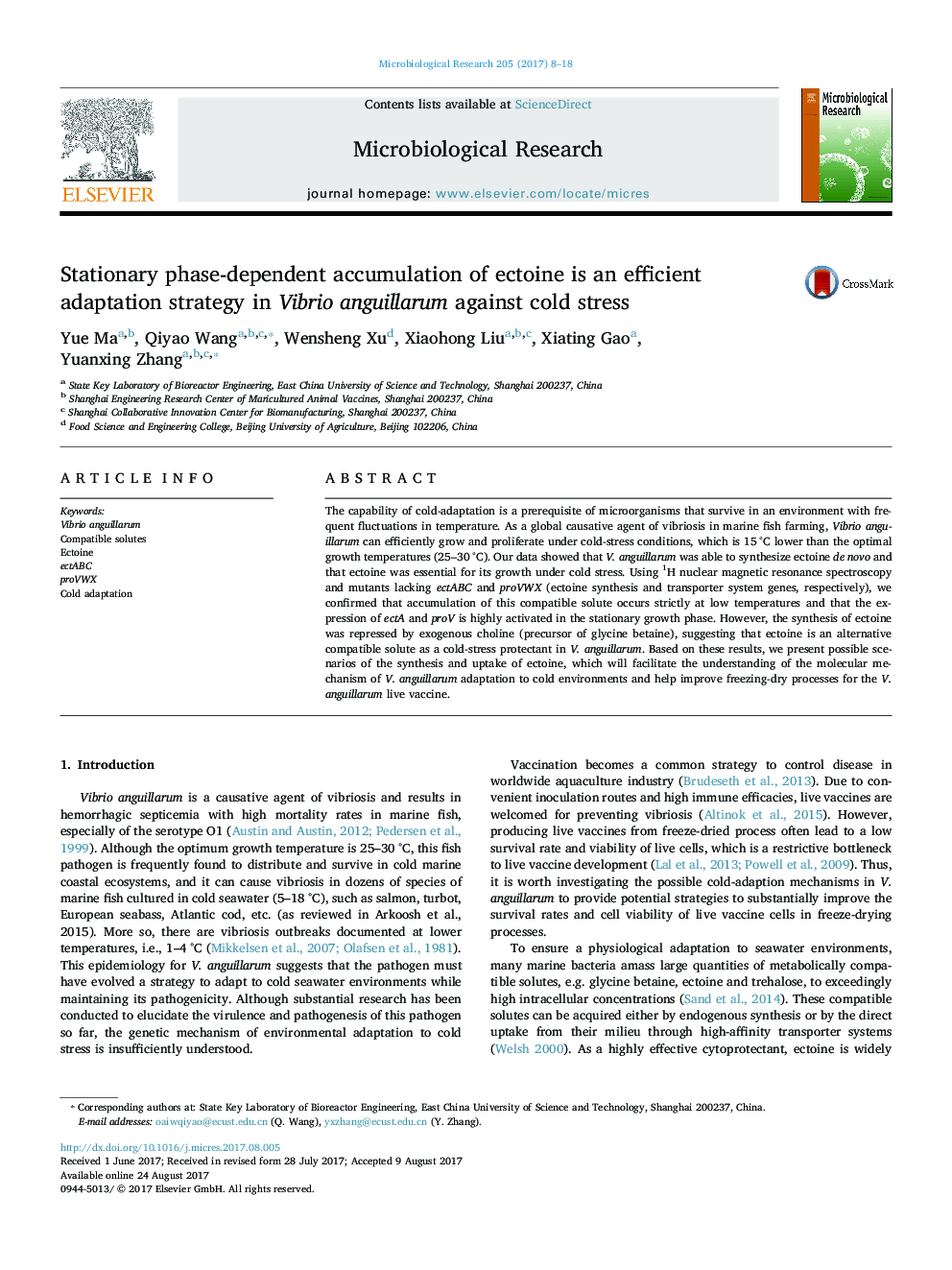| Article ID | Journal | Published Year | Pages | File Type |
|---|---|---|---|---|
| 5522506 | Microbiological Research | 2017 | 11 Pages |
The capability of cold-adaptation is a prerequisite of microorganisms that survive in an environment with frequent fluctuations in temperature. As a global causative agent of vibriosis in marine fish farming, Vibrio anguillarum can efficiently grow and proliferate under cold-stress conditions, which is 15 °C lower than the optimal growth temperatures (25-30 °C). Our data showed that V. anguillarum was able to synthesize ectoine de novo and that ectoine was essential for its growth under cold stress. Using 1H nuclear magnetic resonance spectroscopy and mutants lacking ectABC and proVWX (ectoine synthesis and transporter system genes, respectively), we confirmed that accumulation of this compatible solute occurs strictly at low temperatures and that the expression of ectA and proV is highly activated in the stationary growth phase. However, the synthesis of ectoine was repressed by exogenous choline (precursor of glycine betaine), suggesting that ectoine is an alternative compatible solute as a cold-stress protectant in V. anguillarum. Based on these results, we present possible scenarios of the synthesis and uptake of ectoine, which will facilitate the understanding of the molecular mechanism of V. anguillarum adaptation to cold environments and help improve freezing-dry processes for the V. anguillarum live vaccine.
